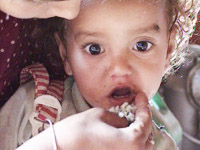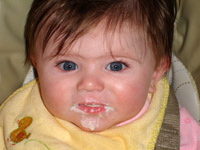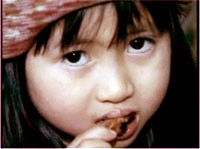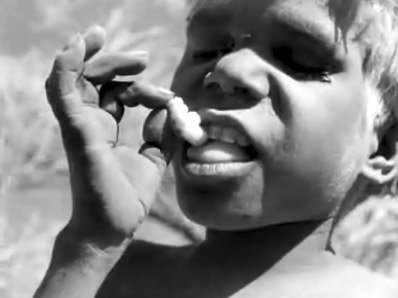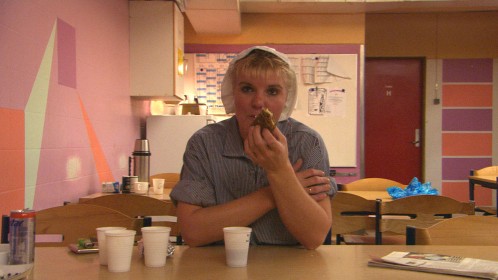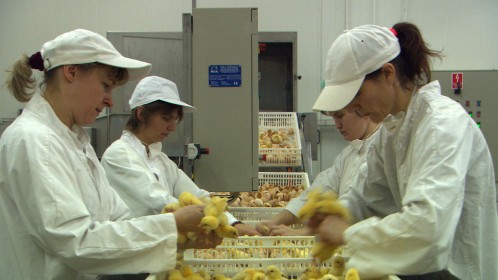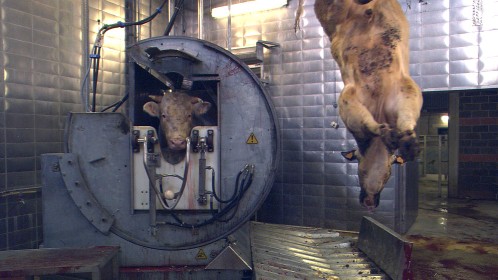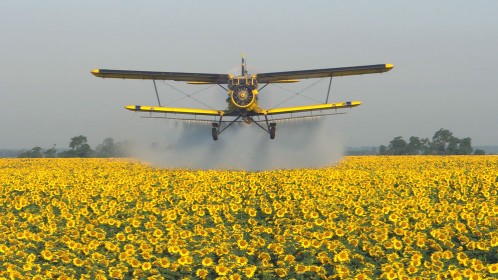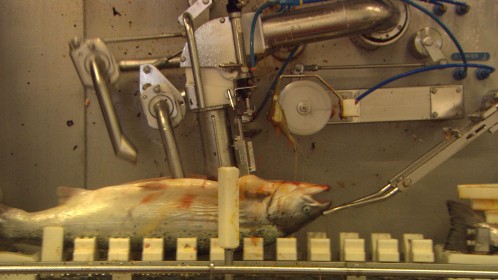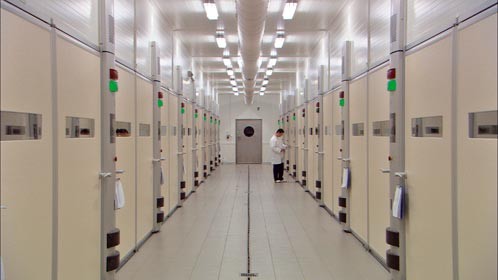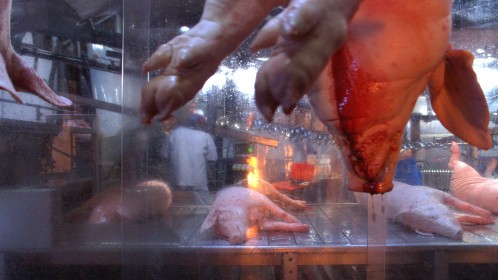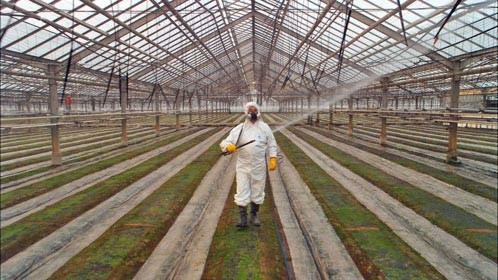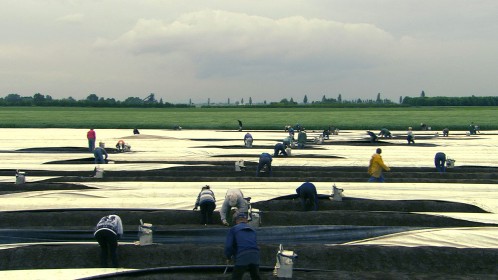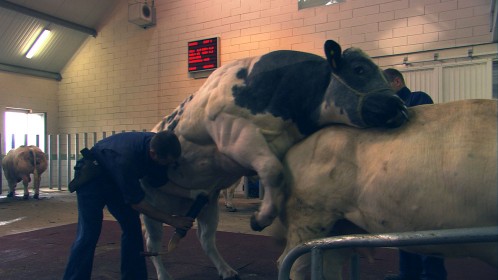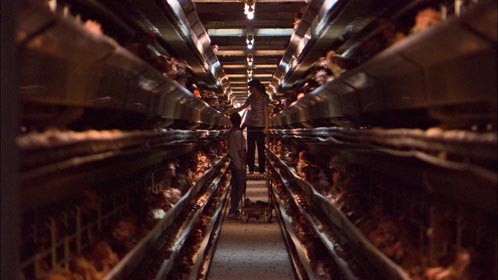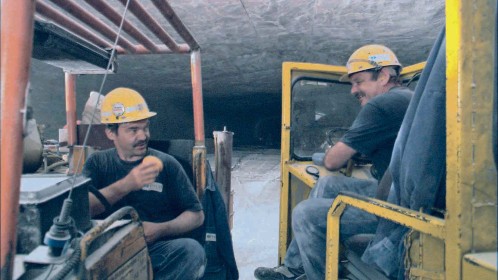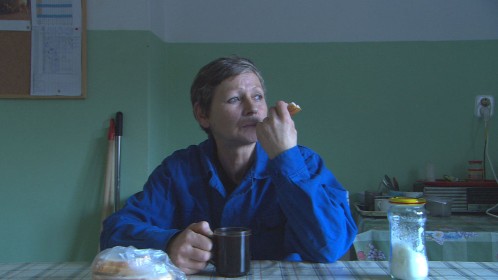Reviews:
"The images from this video will stay in your mind long after the closing credits. The film effectively reveals the paradoxical disparity between the prevalence of hunger and the overproduction of food, sometimes within the same country. It exposes the very high costs of this enormous food production in terms of ecological health, quality of the foods, and humane treatment of the animals and still, there is much food waste and millions of people starving - How can we continue to let this happen?
Most people in developed nations are so far removed from the origins of their food that few really know and understand the methods of modern food production; they still have a very bucolic view of farms and fisheries. This video very effectively shows the reality of modern, high volume food production methods. It will be hard to look at foods the same way again." Dalia Perelman, Nutrition and Food Science Department, San Jose State University
"Through evocative images and compelling stories, We Feed the World illustrates the ominous ecological and societal consequences of a global food system driven solely by the relentless quest for corporate profits and growth. The documentary reflects a European perspective from which every American might learn. Clearly, the future of humanity is at risk and time is running out." John Ikerd, Professor Emeritus, Agricultural Economics, University of Missouri, author of Sustainable Capitalism: A Matter of Common Sense, A Return to Common Sense, Small Farms are Real Farms, and Crisis and Opportunity: Sustainability in American Agriculture
"The absurdities of a globalized food industry are subject to mounting scrutiny and criticism. These excesses are illustrated with jaw-dropping efficacy in this timely documentary from Austrian filmmaker Erwin Wagenhofer." Sofia International Film Festival
"This unsettling documentary from Austria meticulously documents how the mechanization of modern food production has created a monster. It reveals how the Western agro-industry's insatiable hunger for yield is creating poorer quality food, mind-boggling wastage, and impoverishing our natural environment and those who work in it." iofilm
"Sincere...perversely fascinating. It's enough to put you off poultry." Variety
"The documentary focuses on various aspects on the supply side of the food chain, giving insight to the various industries which produce food, like fishing, vegetables and poultry...It just boggles the mind, and makes you feel sad at the way things work, illogical as it may seem, in the name of profit." A Nutshell Review
"We Feed the World highlights two of the most pressing issues of our time: food distribution and globalization. Students can surely learn much by observing the differences shown between large agribusinesses and small farmers...This film illustrates many surprising results and connections among the people who produce foods and those who consume them...A great resource to spark a dialogue about the effects of globalization on food production and distribution systems." Laura Skelton, Assistant Program Director, Facing the Future: People and the Planet
"We Feed The World tells us that we are all part of the system, and that it is up to 'us' to change it, as we are the ones who should desire to do so." Shift Magazine
"The film is a thoughtful look at the problems facing small food producers in the face of increasing subsidies and industrialization of agricultural processes...provides fodder for student discussion on the perils of the modern agriculture system. Strong production values make We Feed the World visually interesting as well as thought provoking." Dr. Jeffrey Miller, Professor, Department of Food Science and Human Nutrition, Colorado State University
"We Feed the World ensures that viewers will rethink their ideas about what farms look like, where their groceries come from, and why people starve. A provocative instructional tool, this film will be an asset anywhere educators wish to inspire students to think critically about globalization, food, and hunger." Charlotte Biltekoff, American Studies & Food Science and Technology Departments, University of California-Davis
"This powerful film provokes the viewer to thought about the real nature of the world's food system, and what we need to consider in moving beyond mere concern with just lower food prices...[We Feed the World] does a superb job of stirring the emotions on the way to envisioning a different and better future with regard to the way we produce the food we eat." Gary D. Lynne, Professor, Dept. of Agricultural Economics and School of Natural Resources, University of Nebraska-Lincoln

